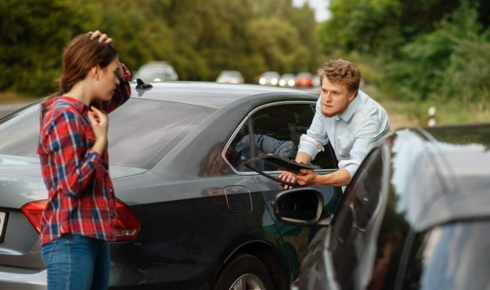
As rideshare services like Uber become increasingly common in Indianapolis, so too do the legal questions surrounding accidents involving these platforms. Whether you were a passenger in an Uber, hit by one, or driving for the company, you may be wondering who is legally responsible for your injuries, and more importantly, whether you can sue Uber.
The answer is not always straightforward. The legal landscape for rideshare crashes differs significantly from traditional car accidents, and understanding your rights can help protect your future.
Here you will find information about what makes Uber cases unique, who may be held liable, and how experienced Indianapolis car wreck attorney Vaughn A. Wamsley can guide you through the process.
How Uber Accidents Differ from Standard Car Wrecks
At first glance, an Uber accident might seem just like any other traffic collision. But legally, it is far more complex. Uber drivers are classified as independent contractors, not employees. This means that Uber typically tries to avoid direct liability for crashes involving its drivers.
However, Uber carries a layered insurance policy that may apply depending on the driver’s status at the time of the crash. These three tiers of coverage are:
- App Off: If the driver is not logged into the Uber app, their personal auto insurance is solely responsible.
- App On, No Passenger: If the driver is logged in and waiting for a ride request, Uber provides limited third-party liability coverage (usually up to $50,000 per person, $100,000 per accident).
- App On, Passenger or En Route: If the driver has accepted a ride or has a passenger in the car, Uber provides up to $1 million in liability coverage.
This distinction is critical in determining whether you can bring a claim and against whom.
Can You Sue Uber Directly?
In most cases, you cannot sue Uber directly unless the company itself was negligent. For example, if Uber failed to properly screen a driver with a known history of reckless driving, that could create grounds for a lawsuit. However, direct lawsuits against Uber are rare and face significant legal obstacles.
Instead, your claim will most likely be filed against:
- The Uber driver’s personal insurance
- Uber’s commercial insurance (depending on the driver’s app status)
- Another at-fault driver, if they caused the crash
Because these cases often involve multiple parties and overlapping insurance policies, it is important to have a car wreck attorney in Indianapolis review the facts of your accident.
Types of Uber Accident Victims Who May Be Eligible to Sue
Legal remedies are not limited to passengers. Several parties may have a right to compensation after an Uber-related crash, including:
- Uber Passengers: If injured during a ride, you may have a strong claim under Uber’s commercial policy.
- Other Drivers: If you were hit by an Uber driver who was on the clock, Uber’s insurance may apply.
- Pedestrians or Cyclists: Injuries caused by an active Uber driver can also trigger company liability.
- Uber Drivers: If injured by another motorist while logged in, you may be entitled to coverage under Uber’s policies and may also pursue a claim against the other driver.
No matter your role in the accident, it is critical to seek legal advice to preserve your rights.
Proving Liability in an Uber Accident Case
Successfully pursuing a claim after an Uber crash involves establishing liability, damages, and the correct insurance coverage. Common factors your attorney will examine include:
- Driver’s App Status: Determines which insurance policy applies.
- Accident Reports: Crucial for verifying fault and circumstances.
- Witness Statements and Dash Cam Footage: Strengthen the case with supporting evidence.
- Medical Records: Documenting injuries and treatment is essential.
- Communication with Uber: Preserving records of ride history or app data can also be important.
A seasoned Indianapolis car wreck attorney will know how to collect and leverage this evidence to build the strongest possible case.
Common Injuries in Uber Accidents
Injuries sustained during an Uber accident can be just as severe as those in traditional car wrecks. Victims may suffer from:
- Traumatic brain injuries
- Spinal cord damage
- Fractures and broken bones
- Soft tissue injuries
- Emotional trauma
Some of these injuries may take days or weeks to appear, making immediate medical care essential, even if you feel “fine” after the crash.
How an Attorney Can Help After an Uber Accident
Trying to handle a rideshare claim on your own can be overwhelming. Insurance companies often exploit the confusion surrounding rideshare liability to delay or deny legitimate claims. A qualified Indianapolis car wreck attorney can help you by:
- Determining which insurance policies apply
- Gathering key evidence to support your claim
- Negotiating with insurers to maximize compensation
- Filing a lawsuit if fair settlement offers are not made
- Ensuring you do not accept an offer that undervalues your injuries
Working with an experienced attorney puts you in the best position to recover compensation for medical expenses, lost wages, pain and suffering, and other damages.
Do Not Delay: Indiana’s Statute of Limitations
In Indiana, the statute of limitations for personal injury claims, including Uber accidents, is generally two years from the date of the crash. Failing to file within that timeframe may forfeit your right to compensation altogether.
This is another reason to contact an attorney as soon as possible following a rideshare accident.
Understanding Your Rights After an Uber Accident
While suing Uber directly is difficult, that does not mean you are without legal recourse after a rideshare accident. Whether you were a passenger, another driver, or a pedestrian, you may be entitled to compensation under Uber’s layered insurance structure. Navigating this process requires a deep understanding of personal injury law and rideshare policy.
If you have been injured in an Uber accident, do not wait. Speak with a trusted legal professional who can protect your rights and guide you through the claims process.
